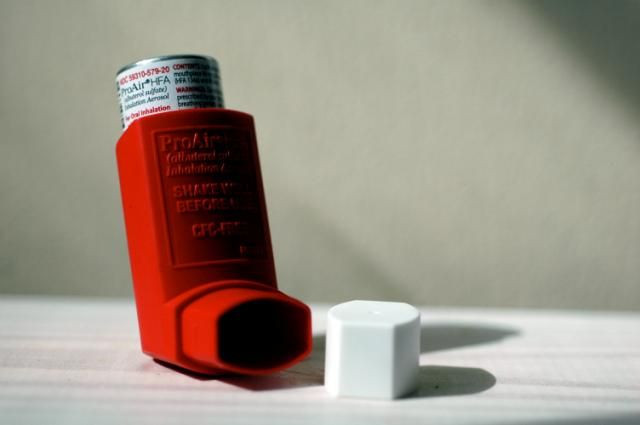COPD Drug, Striverdi Respimat, Receives FDA Approval

A new inhaler spray — Striverdi Respimat — has been approved by the Food and Drug Administration (FDA) for once daily treatment of chronic obstructive pulmonary disease (COPD) afflicting millions of children and adults.
The new long-term medication treats patients with COPD, including chronic bronchitis and emphysema, who have trouble breathing, Curtis Rosebraugh, a director in the FDA’s Center for Drug Evaluation and Research, said in a press statement. “The availability of this new long-term maintenance medication provides an additional treatment options for the millions of Americans who suffer with COPD,” he said.
The prevalence of the disease varies throughout the country, ranging from a low of 4 percent in Washington and Minnesota to nearly 9 percent in Alabama and Kentucky — with the highest rates along the Ohio and Mississippi Rivers, according to the Center for Disease Control and Prevention. The death rate for COPD among American men has fallen from 57 per 100,000 residents to 47.6 between the years 1999 and 2010, with a slight and statistically insignificant uptick in deaths among women.
The chronic lung disease robs suffers of breath over time, with symptoms of wheezing, cough, chest tightness, and shortness of breath. The National Heart, Lung, and Blood Institute says smoking remains the leading cause of COPD, which itself is the third leading cause of death in the U.S.
The FDA said Striverdi Respimat, a long-acting beta-adrenergic agonist (LABA), provides relief by helping muscles around the airways of the pulmonary system remain relaxed, without tightening. The drug was evaluated for safety and effectiveness in clinical trials with 3,104 patients diagnosed with the disease. Those who received the drug showed improved lung functioning over others who received a placebo drug.
Klaus Dugi, corporate senior vice president of medicine at Boehringer Ingelheim of Germany, called the phase III clinical trials results remarkable. "The improvements in lung function and quality of life seen with once-daily Striverdi Respimat are remarkable when you consider that patients in the control group were continuing with their usual care background therapies, including long- and short-acting anticholinergics, short-acting beta agonists, inhaled corticosteroids and xanthines," he said in a press statement. "We are very pleased with these results and are committed to bringing Striverdi Respimat to patients worldwide who need an additional treatment options."
The FDA required the drug to carry a box warning that LABAs increase the risk of death from asthma-related causes, also warning consumers that safety has yet to be proven for patients with asthma. Moreover, the spray should not be used as a “rescue” inhaler to treat acute bronchospasm. Patients with acutely deteriorating COPD should not use the drug, however, for concern of possible side effects including narrowing and obstruction of the respiratory airway, as well as effects on the cardiovascular system.



























